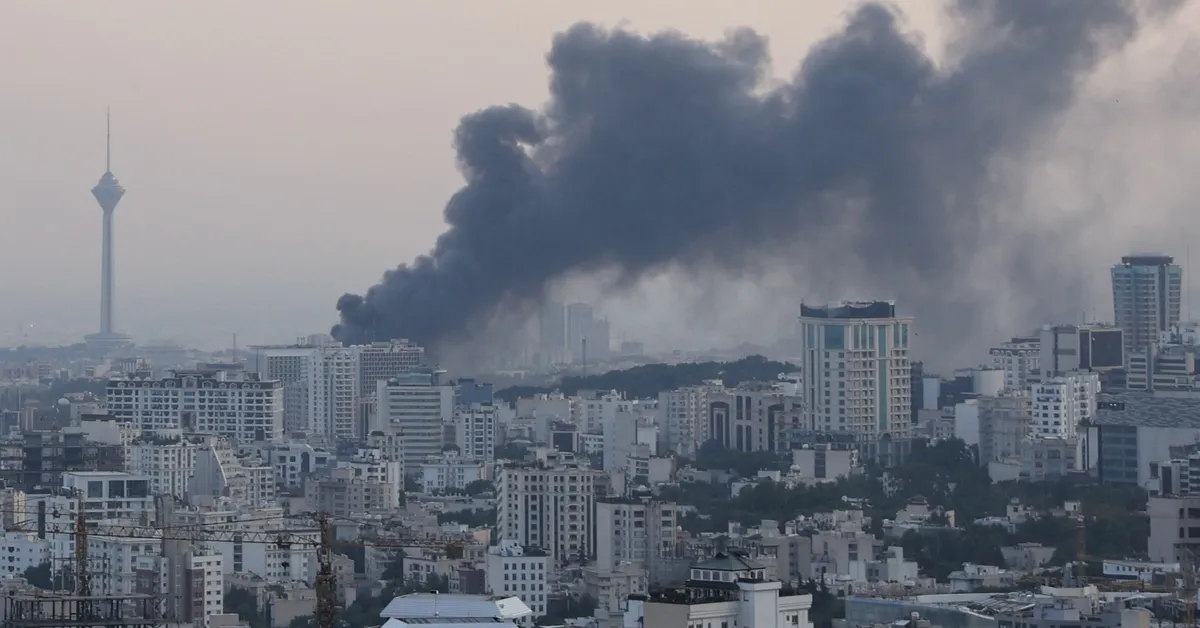
On June 17, 2023, a significant shift in the Middle Eastern military landscape was reported as Israel's command of Iranian airspace emerged as a critical factor in its expanding bombardment strategy. Experts suggest that while Israel can assert its dominance, a decisive strike against Iran's deeply buried nuclear sites may require the involvement of the United States.
In recent developments, Iranian forces have retaliated with missile strikes targeting Israeli cities, yet Israel's military and intelligence capabilities have demonstrated a clear pre-eminence. Israeli warplanes have engaged in extensive operations across the Middle East, striking critical targets such as Iranian nuclear installations, missile stockpiles, scientists, and military leaders.
On Monday, Israeli officials publicly declared their air superiority over Iran. The Israeli military compared its control of Iranian airspace to its operations over other conflict zones involving Iran-aligned groups, such as Gaza and Lebanon, where Israel continues to conduct offensive operations.
Prime Minister Benjamin Netanyahu heralded the control of Iranian airspace as a game-changer, with National Security Adviser Tzachi Hanegbi stating that Israeli pilots now have the freedom to target countless additional objectives in Tehran, thanks to the successful destruction of numerous air defense systems.
Despite the successes claimed by Israeli officials, some experts acknowledge the limitations of these operations. Israel may not be able to fully incapacitate Iran's nuclear program without U.S. intervention, specifically from strategic bombers capable of deploying ordnance that can penetrate deeply buried facilities. Andreas Krieg, a senior lecturer at King's College London, noted that while Israel has achieved tactical victories, achieving a strategic success will require more than air power alone.
Krieg pointed out that even the heaviest U.S. bunker-busting bombs might struggle to reach Iran's most fortified sites, implying that ground forces may be necessary for a comprehensive assault.
Israel's recent campaign commenced with assertions that Tehran was nearing the capability to produce a nuclear bomb, a claim that Iran has consistently denied. While Iranian military officials allege that they have downed Israeli warplanes, Israel counters these claims, maintaining that its aircraft and crews have returned unscathed from operations that require a round trip of over 3,000 kilometers (2,000 miles).
A senior Western defense source revealed that Israeli warplanes have been refueling over Syria, which remains a bastion of Iranian influence. The source confirmed that Israel now operates in Syrian airspace with near-total freedom.
Israel's current military actions evoke memories of last year's devastating offensive against Hezbollah in Lebanon, where Israel successfully eliminated key leadership figures within the first few days. Recent reports indicate that President Trump had vetoed an Israeli plan to target Iran's Supreme Leader Ayatollah Ali Khamenei. However, Netanyahu did not dismiss the possibility of such action, suggesting it could bring the conflict to an end.
As part of its strategy, the Israeli military issued evacuation warnings for specific areas in Tehran, indicating plans to attack the Iranian regime's military infrastructure. A regional intelligence source highlighted Israel's impressive network of agents within Tehran, enabling targeted operations reminiscent of its strikes against Hezbollah's leadership.
Experts like Justin Bronk from the RUSI think-tank note that Iran has limited technical responses to the capabilities of Israeli F-35 aircraft, which are adept at electronic warfare. This capability, combined with F-16s and F-15s armed with precision-guided missiles, has allowed Israel to execute swift and effective strikes, particularly targeting high-ranking Iranian generals.
Despite its successes, challenges remain for Israel's air force. Analysts caution that sustaining the current operational tempo may prove difficult due to the need for ammunition replenishment and warplane maintenance. Reports from Israeli media indicate that a significant shipment of bombs, including bunker busters, arrived from the U.S. in April, suggesting a bolstering of Israel’s military arsenal.
While Israeli officials recognize that completely dismantling Iran's nuclear program may not be feasible, they assert that meaningful damage has already been inflicted. A former senior Israeli security official emphasized that even if Iran retains some uranium enrichment capabilities post-conflict, the absence of personnel and facilities to utilize such capabilities would represent a significant achievement.
In the backdrop of these developments, analysts like Emily Harding from the Center for Strategic and International Studies observe that Israel might possess more operational capacity than previously thought, allowing it to conduct multiple sorties to inflict substantial damage on Iranian targets.